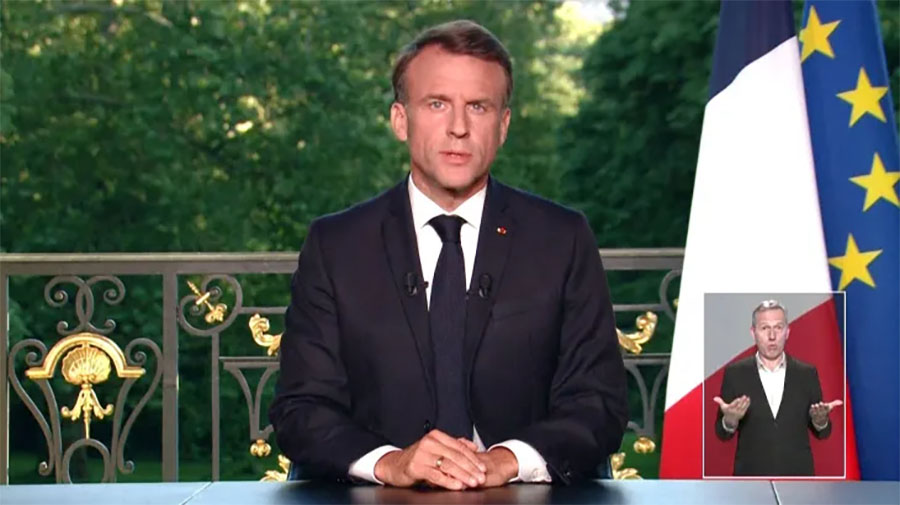
Photo Credit: Reuters
In a pivotal moment for French politics, Prime Minister Gabriel Attal and his government tendered their resignation on Tuesday, marking the start of an indefinite transition period. President Emmanuel Macron accepted the resignation, setting the stage for a caretaker government to manage affairs until a new administration is appointed.
The resignation comes in the wake of an inconclusive snap election that has left France's political landscape fragmented. The left-wing New Popular Front coalition emerged as the top vote-getter, but fell short of securing an absolute majority in the National Assembly. This outcome has complicated the process of forming a new government and selecting a prime minister.
Under the caretaker arrangement, Attal and his ministers will continue to oversee day-to-day operations and handle emergencies, but their powers are significantly curtailed. They cannot introduce new legislation or implement major policy changes. The primary focus will be on ensuring the smooth running of the upcoming Paris Olympics, set to begin on July 26.
The duration of this transitional period remains uncertain. Historically, such periods have been brief in France, typically lasting no more than nine days. However, the current political impasse suggests this transition could extend longer than usual.
Macron has called for dialogue among "all Republican forces" to forge a governing coalition, emphasizing that no single party emerged as a clear victor. Meanwhile, the left-wing alliance is grappling with internal divisions over their prime ministerial candidate.
The political uncertainty also raises questions about crucial upcoming matters, including the preparation of next year's budget. France faces pressure from the European Commission to address its deficit, with spending cuts on the horizon.
As the caretaker government navigates this uncharted territory, all eyes are on the election of the National Assembly's president on Thursday. This key position, equivalent to a parliamentary speaker, could provide insight into potential power dynamics within the fragmented legislature.
With no clear path forward, France enters a period of political flux. The coming days and weeks will be critical in determining the shape of the country's next government and its policy direction.
















